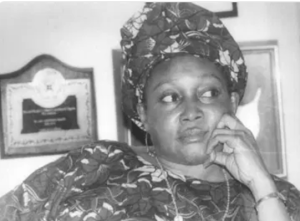ECOWAS Court Dismisses Suit Against FG Over Kudirat Abiola’s Assassination
By Ricky Awodi
ABUJA – The ECOWAS Court of Justice has dismissed a suit filed against the Federal Government of Nigeria over its alleged failure to prosecute those responsible for the assassination of Mrs. Kudirat Abiola, wife of Chief MKO Abiola, the acclaimed winner of the annulled June 12, 1993, presidential election.
The suit, marked ECW/CCJ/APP/62/22, was filed by Khalifa Abiola, Moriam Abiola, and Hadi Abiola on behalf of themselves and the estate of the late Kudirat Abiola. The Applicants argued that her killing in June 1996 was a gross human rights violation and that the Nigerian government had neglected its duty to ensure justice.
According to the Applicants, Kudirat was a vocal advocate for her husband’s release after he was detained by the military regime of General Sani Abacha for declaring himself president. They contended that the government’s failure to hold the killers accountable, despite findings linking Sergeant Barnabas Jebila (also known as Sergeant Rogers) to the murder, constituted a violation of the African Charter on Human and Peoples’ Rights.

However, the ECOWAS Court ruled on Friday that the Applicants failed to provide sufficient proof of their legal relationship with the deceased or present a legal instrument authorizing them to sue on behalf of her estate. Consequently, the court dismissed the case on grounds of locus standi, stating that the Applicants lacked the legal standing to file the suit.
While the Court rejected the Federal Government’s argument that the case fell outside its jurisdiction, it clarified that its role was not to act as an appellate body over national court rulings but to assess member states’ compliance with international human rights obligations.
This ruling effectively ends the legal battle at the regional level, leaving unresolved questions about accountability for Kudirat Abiola’s assassination.
Legal and Political Implications
The verdict reignites discussions about Nigeria’s human rights record, particularly regarding unresolved political assassinations. It also raises concerns about access to justice for victims of state violence, especially when national legal avenues fail to provide closure.
For many, the dismissal of this suit does not erase the lingering demand for justice. The Abiola family’s pursuit of accountability, despite legal setbacks, reflects the broader struggle for historical reckoning in Nigeria’s political landscape.


